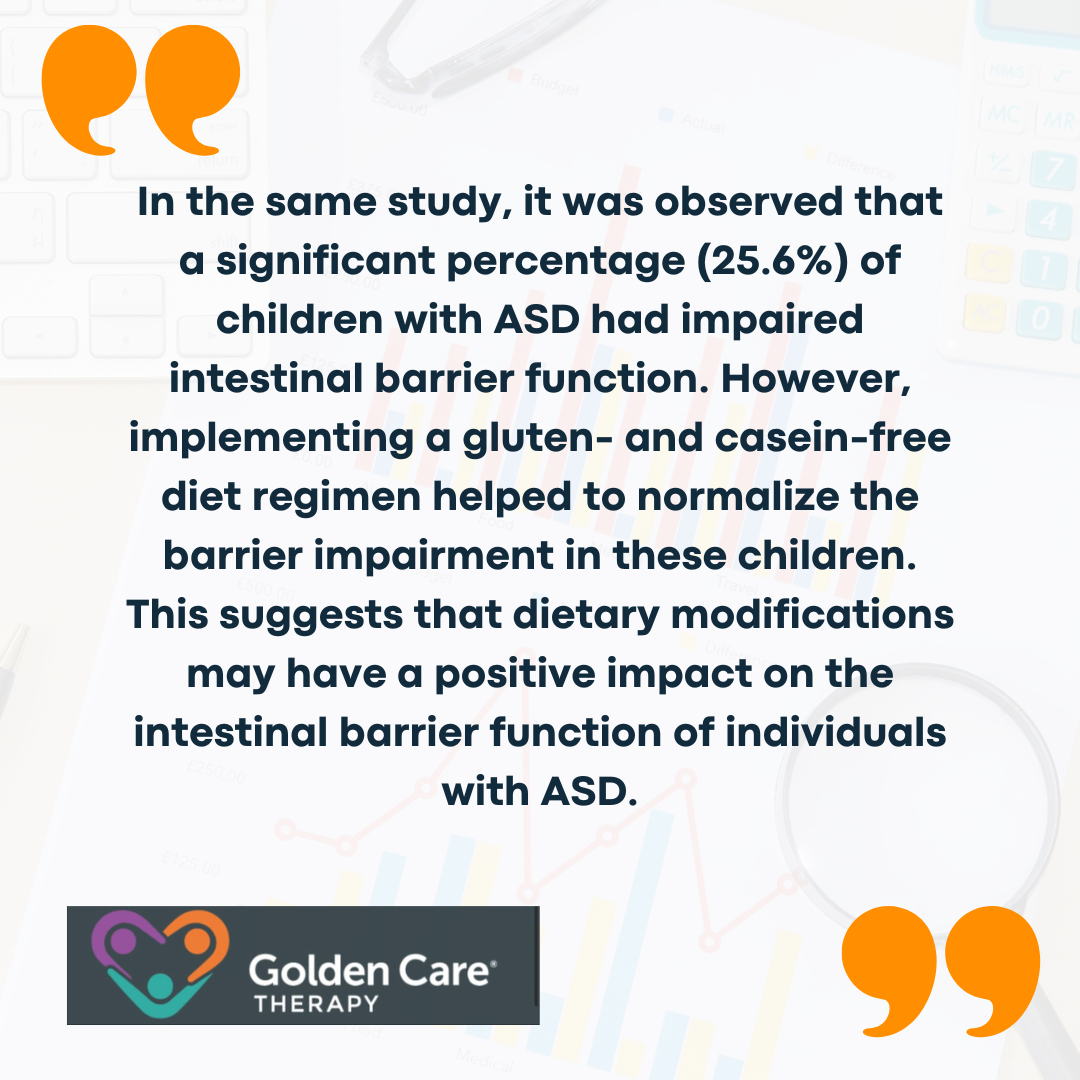Lactose intolerance is a common condition that affects a significant portion of the population. It occurs when the body is unable to fully digest lactose, which is a sugar found in milk and dairy products.
This intolerance is caused by a deficiency in the enzyme lactase, which is responsible for breaking down lactose into simpler sugars that can be easily absorbed by the body.
But how exactly does it affect individuals with autism? That’s what we’ll explore in this article.

The Effects of Lactose Intolerance
When individuals with lactose intolerance consume foods or beverages containing lactose, they may experience a range of unpleasant symptoms. These can include bloating, gas, abdominal pain, diarrhea, and nausea. The severity of these symptoms can vary depending on the individual and the amount of lactose consumed.
It can also lead to dehydration, which is why if your autistic child hasn’t yet developed a proper drinking habit, it’s important to train them as early as possible.
It’s important to note that lactose intolerance does not result in physical harm. However, the symptoms can significantly impact an individual’s quality of life. It is acceptable for those with lactose intolerance to experiment with different dairy products to determine their tolerance level and find suitable alternatives.
Link Between Leaky Gut and ASD
Research has shown a significant association between leaky gut, gluten, and dairy in individuals with autism spectrum disorders.
A study published in BioMed Research International found that 26% of children with ASD had leaky gut compared to only 2% in healthy children. This supports the link between leaky gut, gluten, and dairy in relation to ASD.
Furthermore, children with ASD have been found to show immune reactions to gluten and dairy at a higher incidence compared to healthy children, with dairy reactions being significantly higher.
This suggests a potential association between dietary antigens (such as gluten and casein) and the symptoms of ASD.

Additionally, gastrointestinal complaints are prevalent among children with ASD. In the study, 100 of the enrolled ASD children experienced gastrointestinal complaints such as constipation, diarrhea, pain, gas, and reflux.
Further analysis revealed that children with ASD consuming a regular gluten and dairy-containing diet were more likely to have a positive immune system reaction to gluten compared to healthy children on the same diet.
Impact of Lactose Intolerance on ASD Symptoms
Understanding the impact of lactose intolerance on autism spectrum disorder (ASD) symptoms is crucial for individuals with ASD and their caregivers.
There are two key aspects to consider in this case which are as follows:
Gastrointestinal Complaints in ASD Children
Gastrointestinal (GI) complaints are prevalent among children with ASD. In the previous study, it was found that children with ASD consuming a regular gluten and dairy-containing diet were more likely to have a positive immune system reaction to gluten compared to healthy children on the same diet.
These findings highlight the importance of paying attention to GI health in individuals with ASD. Addressing the dietary factors that contribute to GI complaints, such as lactose intolerance, may help improve overall well-being and potentially alleviate certain ASD symptoms.
Immune Reactions to Gluten and Dairy
Children with ASD show immune reactions to gluten and dairy at a higher incidence than healthy children, with dairy reactions being significantly higher. This suggests a potential association between dietary antigens and ASD symptoms.
The substances formed during the digestion of gluten and casein, known as gluteomorphins and caseomorphins respectively, can affect the brain’s receptors and create cravings.
This may contribute to symptoms of autism and ASD in individuals with leaky gut.

Prevalence of Lactose Intolerance
Research has shown that many autistic children have a higher prevalence of lactose intolerance compared to neurotypical children. Lactose intolerance occurs when the body lacks the enzyme lactase, which is needed to break down lactose, the sugar found in milk and dairy products.
Without sufficient lactase, the lactose cannot be properly absorbed in the small intestine, leading to gastrointestinal symptoms.
Lactose intolerance can cause gas, bloating, and constipation in autistic children, worsening their tummy discomfort. It is important for parents and caregivers to be aware of the potential for lactose intolerance in autistic children and to monitor their reactions to dairy products.

Dietary Recommendations
In order to manage lactose intolerance in individuals with autism, appropriate dietary choices should be made.
Parents and caregivers can explore the option of switching to lactose-free or dairy alternatives for their autistic child. Dairy alternatives such as almond milk, pea milk, or oat milk can provide similar nutritional benefits without the lactose content.
These alternatives can be a suitable replacement for cow’s milk and may help alleviate symptoms of lactose intolerance.
It’s important to monitor the consumption of dairy products and observe any changes in symptoms.
Consulting with healthcare professionals, such as registered dietitians or pediatricians, can provide further guidance on suitable dairy alternatives and individualized dietary recommendations.
By making dietary adjustments and seeking professional guidance, parents and caregivers can help alleviate the symptoms of lactose intolerance and manage gut issues in autistic children.
Each individual’s dietary needs may vary, so it’s essential to tailor the recommendations to suit the specific requirements and preferences of the autistic individual.
Research continues to shed light on the neurological basis of sensory issues in autism, offering hope for more targeted and effective therapies in the future. By recognizing and addressing sensory processing difficulties, we can improve the quality of life for individuals with autism and their families. If you’re seeking specialized ABA therapy in New Jersey, Indiana, Georgia, and New York, Golden Care offers comprehensive services tailored to meet the unique needs of each individual. Contact us to learn more or book a consultation today.
Sources:
https://www.1specialplace.com/2023/11/24/why-milk-might-make-tummy-troubles-worse-for-autistic-kids
https://www.autismspeaks.org/expert-opinion/can-probiotics-help-teen-autism-and-lactose-intolerance
https://rootcausemedicalclinics.com/are-gluten-dairy-a-cause-for-autism-spectrum-disorders



